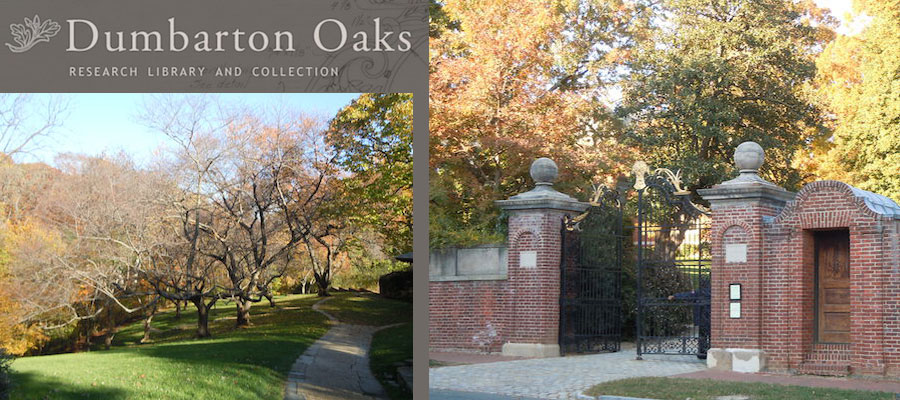2016 Byzantine Greek Summer School, Dumbarton Oaks, July 5–29, 2016
Dumbarton Oaks will again offer an intensive four-week course in medieval Greek and paleography in the early summer of 2016. Approximately ten places will be available, with priority going to students without ready access to similar courses at local or regional institutions.
Course Offerings
The principal course will be a daily 1 ½ hour session devoted to the translation of sample Byzantine texts. Each week texts will be selected from a different genre, e.g., historiography, hagiography, poetry, and epistolography. Two afternoons a week hour-long sessions on paleography will be held. In addition each student will receive a minimum of one hour per week of individual tutorial. Thus approximately eleven hours per week will be devoted to formal classroom instruction. In the remaining hours of the week students will prepare their assignments.
Students will also have the opportunity to study inscribed objects in the Byzantine Collection, and view facsimiles of manuscripts in the Dumbarton Oaks Rare Books Collection, as well as original manuscripts in the Byzantine Collection. Any extra time may be used for personal research in the Dumbarton Oaks library, but support for the summer school is intended first and foremost for study of Byzantine Greek language and texts.
Faculty
Alexander Alexakis, University of Ioannina
Stratis Papaioannou, Brown University
Accommodation and Costs
No tuition fees will be charged. Successful candidates from outside the Washington area will be provided with housing at no cost and lunch on weekdays. Local area students will not be offered accommodation, but will receive free lunch on weekdays. Students are expected to cover their own transportation expenses.
Requirements for Admission
Applicants must be graduate students in a field of Byzantine studies (or advanced undergraduates with a strong background in Greek). Two years of college-level ancient Greek (or the equivalent) are a prerequisite; a diagnostic test will be administered to finalist applicants before successful candidates are selected.
